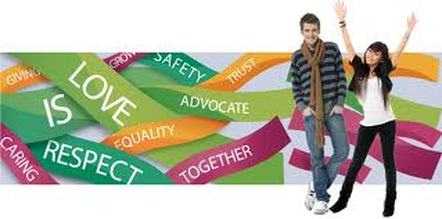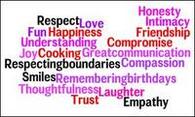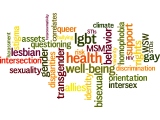
SEXUALITY & TEEN DATING VIOLENCE

DID YOU KNOW...?
Did you know that 19% of BHS females reported having experienced sexual contact against their will according to the 2015 Youth Risk Behavior Survey? Even if your teen is not dating or is involved in a healthy relationship, the odds are good that he/she knows someone who is struggling. The issue is even impacting kids at the middle school level. Though parents may think middle school is too early to talk to their kids about dating violence, sexual activity in grades 6-8, including sexting, is increasing. Even if your child is not yet exploring partner relationships, many of their peers are, and young girls, especially, are often engaging in activity for status. It’s not too soon to start the conversation about healthy relationships. Break the Cycle is an organization dedicated to empowering teens to end domestic abuse and relationship violence. For almost a decade, the organization's “It’s Time To Talk Day” has brought together parents, survivors, celebrities, non-profit organizations, corporations and journalists to raise awareness of the issues of domestic and dating violence. Parents and teens are encouraged to start talking about what it means to have a healthy relationship. Television, movies, the news, your child’s social life – all offer opportunities to initiate conversations about what healthy, respectful relationships look like and what to do when a relationship could be abusive. Starting an ongoing conversation can be one of the most effective ways you can help prevent dating violence. PARENTING TEENS WHO MAY BE SEXUALLY ACTIVE A critical component of adolescent development is the formation of new relationships that feed into the exploration of sexuality. These relationships help teens gain the experience they need for more lasting relationships in the future. As parents, we are vital role models and voices of wisdom for helping our children forge these relationships in ways that are safe and healthy. Click here for an article from Planned Parenthood that offers some excellent tips for connecting with and supporting your teen. Another excellent website that offers a full range of information on teen sexuality is Advocates for Youth. In addition to universal information, the organization also has a terrific page dedicated to the special challenges facing LGBTQ youth. The Healthy Teen Network offers a valuable Advocacy Resource Guide, and for LGBTQ youth in crisis, the website/hotline The Trevor Project could be a lifesaver. |
ESCALATION
BHS is sponsoring special screenings for seniors and senior parents of the “Escalation,” an important film about relationship violence that examines the hallmarks of healthy and unhealthy relationships, providing viewers with tools to identify the soft signs of abuse and understand the scope of dating violence. To continue conversation about this important topic at home, click here for more information. WHAT IS THE LAW? Children under 16 cannot give consent for intercourse. Engaging in sexual intercourse under the age of 16 is considered statutory rape. Children under the age of 14 cannot consent to touching in private areas, such as genitals, buttocks, female breasts, which under the law is considered indecent assault and battery. TIPS FOR STARTING THE CONVERSATION
TYPES OF ABUSE WARNING SIGNS OF ABUSE HOW TO HELP YOUR CHILD RESOURCES According to statistics from Planned Parenthood, one in three teens has experienced dating violence or relationship abuse. It crosses all racial, economic and social lines This pattern of over-controlling behavior from one partner over another isn’t necessarily physical abuse – it can also be sexual, emotional, verbal and psychological abuse as well. It can occur in serious, long-term relationships as well as casual dating situations, and it can effect same sex relationships as well heterosexual relationships. What can parents do? Check out the special Parent Network Newsletter on Healthy Relationships (click here for the Middle School edition) for a wealth of tips and ideas. You can also check out these excellent resources:
www.teendvmonth.org www.loveisrespect.org https://www.joinonelove.org/ www.ncadv.org Planned Parenthood Sexuality Information & Education Council Jane Doe, Inc. Jennifer A. Lynch Fund Love is Not Abuse National Teen Dating Abuse Hotline Lauren Dunne Astley Memorial Fund It's Time to Talk Breakthecycle.org Reachma.org 28 ACRONYMS PARENTS SHOULD KNOW So "LMK" -- let me know -- and "WYCM" -- will you call me? -- are innocent enough and common texting slang. But do you know what “GNOC” means? (Try “get naked on camera.” Sometimes, what looks like simple texting can be sexting. What do parents need to know? Check out this informative CNN article. |
TEEN DATING SURVEY (Excerpted from LoveIsNotAbuse.org)
A 2009 survey of teens by dosomething.org revealed that 1 in 3 teens will be in an abusive relationship -- and that most will stay in the relationship after the first act of violence. The survey results include:
- Approximately 50% of youth respondents state they are personally affected by this issue (whether it be they are in an abusive relationship or know someone who is in one)
- Over 90% of respondents feel that every school should be required to include the topic/issue of teen dating abuse and violence in the curriculum; over 75% confirm they would work with legislators to put these requirements into place with their own school or local board of education
- Over 80% of those surveyed requested more information from DoSomething.org on this topic and ways they could take action in their community; when asked "Why do you want more information?" respondents answered (names withheld to protect anonymity):
- "Eliminating teen dating abuse will not only help us, the current teens, but it will also help the future teens."
- "I want to make a difference in my generation and stop the ongoing violence that is never properly dealt with."
- "Because it's a cause worth taking action for…[and]…young girls that get abused…grow up to be wives that get abused…and no one deserves that."
Know! The Teen Dating Bill of Rights
(from Drug Free Action Alliance)
Does your son or daughter know what to expect from a “dating” partner? Have you discussed with your child the characteristics of a healthy dating relationship?
While it is easy to make light of adolescent boyfriend/girlfriend relationships, it may be a risky notion; as statistics show that one in three teens experience an abusive dating relationship prior to high school graduation.
Click here for the Teen Dating Bill of Rights.
(from Drug Free Action Alliance)
Does your son or daughter know what to expect from a “dating” partner? Have you discussed with your child the characteristics of a healthy dating relationship?
While it is easy to make light of adolescent boyfriend/girlfriend relationships, it may be a risky notion; as statistics show that one in three teens experience an abusive dating relationship prior to high school graduation.
Click here for the Teen Dating Bill of Rights.



